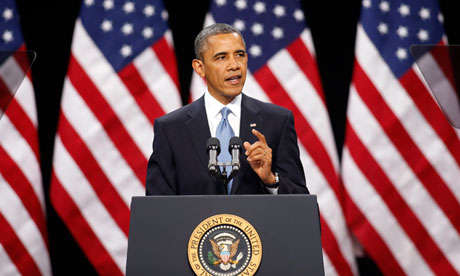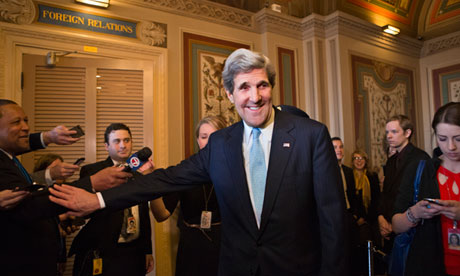CHICAGO — A 15-year-old girl who had performed in President Obama's inauguration festivities is the latest face of the increasing homicide toll in Obama's hometown, slain in a Chicago park by a gunman who apparently was not aiming at her.
Chicago police said Hadiya Pendleton was talking with friends in a park about a mile from Obama's home in a South Side neighborhood Tuesday afternoon when a man fired on the group. Pendleton was shot in the back as she tried to run away.
The Obama administration said it was a "terrible tragedy" any time a young person is struck down "with so much of their life ahead of them."
"The president and first lady's thoughts and prayers are with the family of Hadiya Pendleton," administration spokesman Jay Carney said. "All of our thoughts and prayers are with her family."
He added that while "we may not be able to prevent every act of gun violence ... we need to take action to reduce gun violence" and "make sure that we're doing everything we can in a responsible way to reduce this violence, to protect our children, including Hadiya Pendleton and others."
The details of her death also gave fuel to gun-control advocates in the running debate over firearms. The story traveled back to Washington on Wednesday, where Sen. Dick Durbin, D-Ill., mentioned Pendleton during a Senate Judiciary Committee hearing about gun violence.
He noted that Pendleton, a majorette, had marched in the inaugural parade last week. "It was the highlight of her young life," he said.
"Just a matter of days after the happiest day of her life, she's gone," Durbin said.
The city's 42nd slaying is part of Chicago's bloodiest January in more than a decade, coming after 2012, which ended with more than 500 homicides for the first time since 2008. It also comes as Obama, spurred by the Connecticut elementary-school massacre in December, is pushing for tougher gun laws.
Hadiya's father, Nathaniel Pendleton, spoke Wednesday at a police news conference, which was held in the same park where his daughter died.
"He took the light of my life," Pendleton said. He then spoke to the killer: "Look at yourself, just know that you took a bright person, an innocent person, a nonviolent person." Chicago Police Superintendent Garry McCarthy consoled him, the girl's mother and 10-year-old brother.
Hadiya Pendleton was a bright kid who was killed just as she was "wondering about which lofty goal she wanted to achieve," said her godfather, Damon Stewart. She had been a majorette with the King College Prep band.
"She was a very active kid, doing dance, cheerleading, who felt like she could accomplish just about anything, a very good student who had big dreams about what she wanted to be, a doctor, an attorney," said Stewart, a Chicago police officer and attorney. "She was constantly getting good grades."
When students filled the halls of King College Prep on Wednesday, there was a sea of purple and red, purple because it was Pendleton's favorite color and red because of Pendleton's violent death.
"You don't think at 2 in the afternoon at a park you're going to lose the one you love and care about," said Klyn Jones, a friend who was with Pendleton at the park.
On Tuesday, Pendleton and about 12 friends were at a park on the city's South Side, not far from the University of Chicago campus. When it started to rain, they all took shelter under a canopy. Jones said she looked up from her phone and saw a man jumping a fence.
He ran toward the group and started shooting, then jumped into a vehicle, which drove away, according to the police.
"It is believed that the offender mistook the group for gang members and fired at them," said Joshua Purkiss, an officer with the Chicago Police Department. In Chicago, gangs routinely and often indiscriminately open fire.
Another boy was shot once in the leg but is in good condition. A third victim had a graze wound.
Jones said a friend cradled Pendleton's head in her lap as they waited for the ambulance. Jones held her hand. They thought she would pull through.
Pendleton's death also came up at a news conference by Mayor Rahm Emanuel.
Emanuel called her "what is best in our city" and urged anyone with information about the slaying to come forward.
"If anybody has any information, you are not a snitch, you're a citizen," the mayor said. "You're a good citizen in good standing if you help."
Compiled from The Associated Press, the Chicago Tribune and The New York Times.



